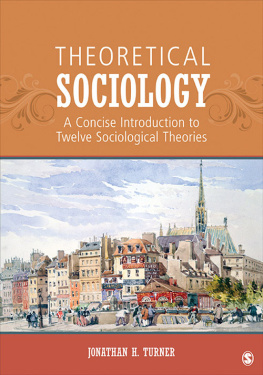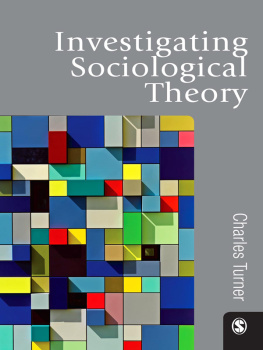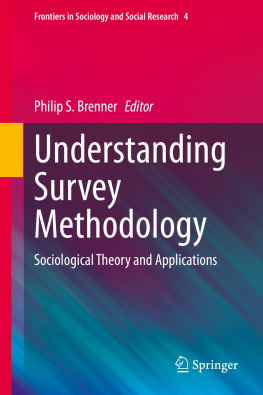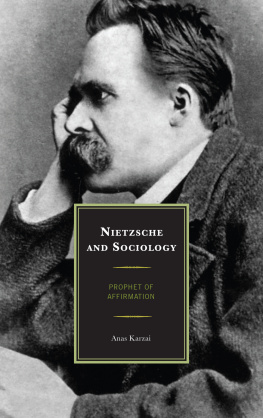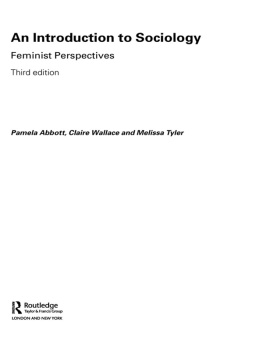

To the memory of my dear friend, Clara Dean, who in 1969 began typing all my manuscripts and who, at age 85, retired in 2010 from typing, only to die in 2012. I will forever be grateful to her friendship and incredible competence for over forty years in getting my manuscripts ready for publication.


Copyright 2014 by SAGE Publications, Inc.
All rights reserved. No part of this book may be reproduced or utilized in any form or by any means, electronic or mechanical, including photocopying, recording, or by any information storage and retrieval system, without permission in writing from the publisher.
Printed in the United States of America
Library of Congress Cataloging-in-Publication Data
A catalog record of this book is available from the Library of Congress.
9781452203478
This book is printed on acid-free paper.
13 14 15 16 17 10 9 8 7 6 5 4 3 2 1

FOR INFORMATION:
SAGE Publications, Inc.
2455 Teller Road
Thousand Oaks, California 91320
E-mail:
SAGE Publications Ltd.
1 Olivers Yard
55 City Road
London EC1Y 1SP
United Kingdom
SAGE Publications India Pvt. Ltd.
B 1/I 1 Mohan Cooperative Industrial Area
Mathura Road, New Delhi 110 044
India
SAGE Publications Asia-Pacific Pte. Ltd.
3 Church Street
#10-04 Samsung Hub
Singapore 049483
Acquisitions Editor: Diane McDaniel
Editorial Assistant: Lauren Johnson
Production Editor: Eric Garner
Copy Editor: Lana Todorovic-Arndt
Typesetter: C&M Digitals (P) Ltd.
Proofreader: Jennifer Gritt
Indexer: Diggs Publication Services, Inc.
Cover Designer: Gail Buschman
Marketing Manager: Erica DeLuca
Detailed Contents
About the Author
Jonathan H. Turner (PhD, Cornell University) is Distinguished Professor of sociology at the University of California, Riverside and University Professor for the University of California. The leading authority on sociological theory, Dr. Turner is the author of 38 influential books, which have been published in twelve different languages, as well as the author of many research articles in numerous journals and books.
Preface
T here is surprisingly little consensus among sociologist about what theory is and what it is supposed to do for sociological analysis. For some, theory represents the way that science explains the empirical world. For others, it is simply an orienting perspective that can be used to describe events. For still others, theory is to be normative, advocating social arrangements that reduce oppression and inequality. All of these views of theory have been present since sociologys beginnings, and the arguments and debates among those holding one or the other of these views can become, to say the least, quite contentious. So, in writing a short introduction to sociological theory, it is difficult to know where to begin and end, given the controversy. I have sidestepped the controversy by outlining diverse approaches within twelve broad theoretical traditions. In some, scientific explanation is the dominant view; in others, a more descriptive view prevails; in still others, a critical view of the role of theorizing dominates; and in a few, two or all three visions of what theory should be can be found. My biases are toward scientific theorizing, where abstract laws and models that explain how the social universe operates are preferred. Yet, I have given fair coverage to the alternative approaches because, like it or not, they are part of what is called sociological theory today.
I have written many long books on theory, but I have tried something new here. I haveat least for mewritten a short book that is still comprehensive but that highlights the key elements of a particular theoretical perspective and some of the important theorists working within a perspective. The goal has been to create a handbook that packs a lot of information into a small space, especially compared to the other large books on theory that I have written in the past. I originally thought of titling the book Lectures on Theoretical Traditions because the chapters have drawn upon my lecture notes, but I have also pulled important elements from my larger and longer books. The result, I hope, is a book that is useful in many different ways, such as a concise introduction to the range of theorizing in sociology, a convenient review of theory for those brushing upon on sociological theorizing, a source of lectures for instructors, and a quick guide to those who do not know much about sociological theory and are just curious about what it is.
It was fun to write this book, and moreover, it was good for mechampion of theoretical tomesto summarize in an abbreviated but a still robust manner.
Jonathan Turner
Murrieta, California
USA
| CHAPTER | Theoretical Sociology Today |
Controversy Over What Theoretical Sociology Can or Should Be
Sociology emerged as an explicit discipline in the early 1800s, although people have always thought about the universe around them, including the social universe of their own creation. Auguste Comte, the titular founder of sociology, preferred the name social physics for the new discipline because, during his time, the notion of physics had not been usurped by the current discipline using this name. Physics back then meant to study the nature of; therefore, social physics was to be a scientific discipline devoted to studying the nature of the social universe created by peoples behaviors, interactions, and patterns of social organization. For Comte, explanations in science are developed through theory, and thus, sociological theory was to be the vehicle by which explanations of the social universe were to be achievedjust as is the case in physics and biology.
Since the label, social physics, had already been used by a Belgian statistician, Comte had to adopt the Latin-Greek hybrid label of sociologya name that he did not like but had to accept. From the very beginning, the view of sociology as an explanatory science, like any natural science, was questioned by many. Today, many still do not believe that sociology can be a natural science, and hence, theoretical sociology cannot offer explanations like those in the hard sciences. For these critics, humans have the capacity to change the very nature of their universe, with the result that there can be no universal laws about social dynamics like those in physics or even biology. Moreover, so much of what happens in history is by chance events converging to produce unpredictable outcomes. And so, at best, sociological theory can describe for a time the social universe, but as this universe changes its fundamental character, old theories must give ways to new theories, which will also eventually become obsolete as humans remake their universe.
For others, whether or not sociology can be a science, it must first of all be critical of social conditions where oppression and inequality prevail. Sociology should emphasize unjust social conditions and propose liberating alternatives; and for many who make this argument, the scientific pretension of some in the discipline is part of the problema theme that has existed in sociology from its first moments as a new discipline.
Next page
